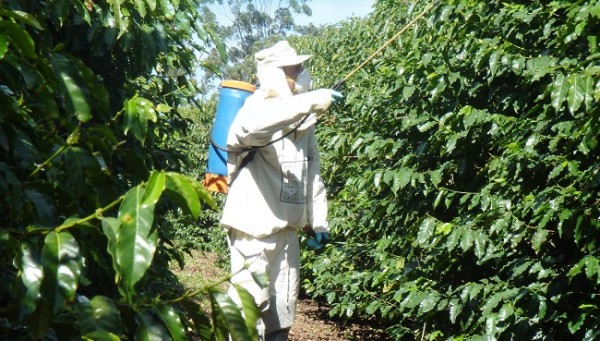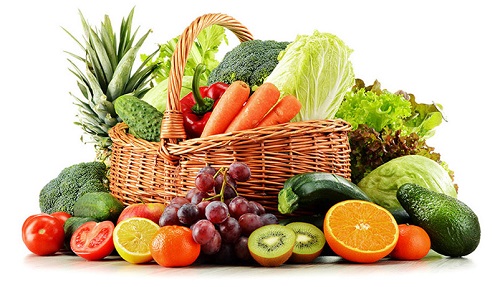
Much has been discussed lately about the new law on register and use of agrochemicals, known as the Safer Food Act. Nevertheless, the discussion is based on little critical analysis of the proposed content.
Plant protection products, also called crop protection products, phytosanitary products, pesticides or agrochemicals, help farmers grow crops by protecting those crops against pests, diseases, and weeds, as well as by increasing yield.
The production of the main crops has risen over threefold since 1960 mainly due to pesticides since without them over half those crops would have been lost to pests and diseases. The Food and Agriculture Organization of the United Nations (FAO) estimates that about 26% to 40% of the potential world production is lost due to weeds, pests, and diseases.
Because of the diversity of regions and production systems, the situation is the same in terms of coffee growing. Since Brazil grows a great variety of coffee beans for all qualities of beverage, it has access to the most demanding and varied markets. Therefore, coffee remains one of the leading agricultural products in the Brazilian exports list.
The main pests in coffee growing are coffee berry borer, coffee leaf miner, cicada, and acarus. Among the diseases, we highlight coffee rust and the complex cercosporiose, anthracnose, and phoma. There is also a sharp growth in problems caused by bacteria in wet regions and weeds.
Several studies show plant protection products used correctly and in accordance with the Good Agricultural Practices described in label instructions allow farmers to grow safe food with good quality and at attractive prices.
The proposal is supported by the Brazilian Agricultural Research Corporation (Embrapa), the Agriculture Parliamentary Front (Frente Parlamentar da Agropecuária), entities and associations connected to rural producers, agroindustry, exporters, and the chemical industry.
The current rules on research, experimentation, production, packing and labeling, transportation, storage, marketing, advertising, use, import, export, residue destination, register, classification, control, inspection and oversight of agrochemicals are set forth by the Federal Law 7.802 of 1989, regulated two years afterward, and with few amendments.
 The Special Commission that analyzes new industry rules passed, on June 25, 2018, the proposal to amend the current law, as described in a report by the representative Luiz Nishimori. According to the report, “the purpose is to speed up the register of more modern substances which were developed after years of scientific research and are even safer than the ones currently in use.” The proposed bill must still be passed on the floor of the House of Representatives. To take effect, the bill must also be passed by the Senate and sanctioned by the President.
The Special Commission that analyzes new industry rules passed, on June 25, 2018, the proposal to amend the current law, as described in a report by the representative Luiz Nishimori. According to the report, “the purpose is to speed up the register of more modern substances which were developed after years of scientific research and are even safer than the ones currently in use.” The proposed bill must still be passed on the floor of the House of Representatives. To take effect, the bill must also be passed by the Senate and sanctioned by the President.
The main aspect of the bill is, in fact, that it establishes hazard as the evaluation criterion, and the new report introduces the risk evaluation criterion. Such risk evaluation criterion is already adopted by Anvisa when analyzing medicines, for example. The agency analyzes the adverse effects of a medicine and its benefits to control a disease.
The evaluation is conducted according to parameters such as: hazard identification, capability of exposure to the hazard, assessment of the dose and response to the hazard, ways of using the product, means to control hazards, and communication to prevent hazards and protect from hazards. Starting from a careful analysis of each stage, the risk is defined as acceptable or unacceptable. Summing up, this is a regulatory technique to register agrochemicals. It evaluates products under conditions of use, focusing on farm workers safety, consumer health, and environmental aspects.
Another critical aspect in the amendment of the law in effect is the assignment of responsibility to approve (or not) new plant protection products. Currently, Anvisa evaluates the effects on human health, Ibama evaluates the effects on the environment, and the Department of Agriculture evaluates the agronomic interest. All three agencies have authority to turn down a product. The new bill centralizes authority with the Department of Agriculture, even though Anvisa and Ibama are in charge of health and environment analysis.
Another aspect of the bill is shortening the registration process and making it more efficient. Nowadays, countries in which agriculture has high economic representativeness, as in Brazil, register occurs in 1 to 3 years. That would be very favorable to all the Brazilian agricultural industry.
It is worth noting that agrochemicals are extensively tested to ensure their safety for humans, the wildlife and the environment. Such tests are conducted to evaluate a range of potential adverse effects, and they take into account the potential of windows of exposure sensitivity (e.g., pregnancy and puberty) and vulnerable populations (pregnant or nursing women, very young people or older adults), ensuring safety margins. Regulatory agencies lay down strict limits on plant protection products residues. Consumers are protected by laws regulating the maximum residue levels on food.
The entities representing the Brazilian agribusiness support the amendment of the Federal Law 7.802/89 because the amendment actually modernizes the regulation and legal rules regarding plant protection products. We believe it is necessary to explain that such amendment does not exclude the scientific rigor and transparency in the register process, which are fundamental for the safety and development of the domestic industry. To modernize the law means to include objective criteria of evaluation observing scientific methods that ensure safety to the operator, the environment, and the final consumer.
It is highly crucial that farm workers, operators, and handlers use the agrochemicals with care. Farmers who follow label and leaflet instructions and good agricultural practices for the responsible and safe use of pesticides protect themselves, their real estate, and consumers against adverse effects. For this purpose, the use of personal protective equipment is necessary for handling pesticides, its storage and transport must follow safety recommendations, and label instructions must be complied with and followed.
As a legitimate representative of the Brazilian coffee export industry, Cecafé brings up the issues of phytosanitary products and good practices for the correct and safe use of these products in its Social Responsibility and Sustainability Programs. Produtor Informado, for example, contains a particular approach on management for chemical and mechanic control of weeds between coffee rows and management of pests and diseases. The goal is to find sustainable alternatives to manage crops, always following the Maximum Residue Limit (MRL) for coffee according to the regulations of the different importing countries.
In a partnership with agrochemical companies, Plataforma Global do Café, and others, Cecafé is getting ready to launch the Responsible Use of Agrochemicals Project. Starting in this second semester of 2018, the Project aims to: raise awareness of operators on the importance of the use of personal protective equipment, safe and correct storage, and promote integrated management of pests, diseases, and weeds.
Because Cecafé is aware of global tendencies and the need for integration between all parts of the production chain and consumers, Cecafé will promote a wide debate on the new law and global issues related to agrochemicals. To do so, the event will be mediated by the National Union of the Plant Protection Products Industry (Sindiveg). Members, farmers representative entities (CNA and CNC), agronomic research (Embrapa, IAC, and the Secretariat of Agriculture of São Paulo State), and the industries of roasted & ground coffee (ABIC) and instant coffee (ABICS) will also take part in the event.
Marcos Matos – General Officer at CECAFÉ
Lilian Vendrametto – Sustainability Manager at CECAFÉ


Leave A Comment